Hospital care for young people with a learning disability
Hospital care for young people with a learning disability

The information on this page is for people who will soon be adults.
This page will help young people with a learning disability to understand more about moving from children’s services to adult services.

Moving from children’s services to adult services is called
transition
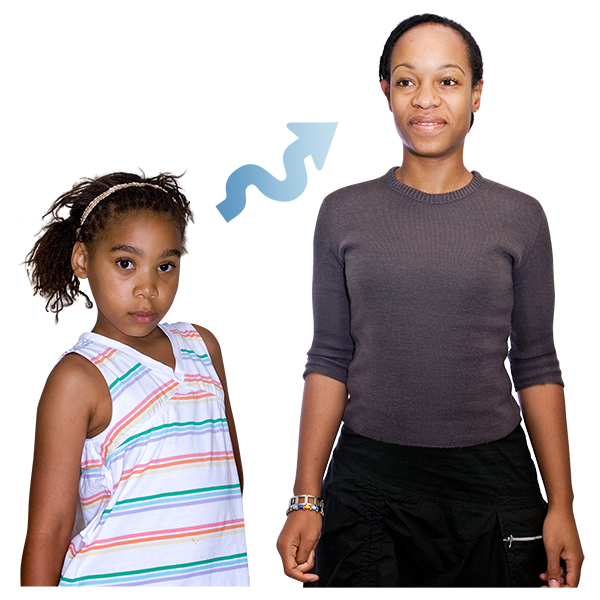 Transition means changing from one thing to another. Transition sometimes means things like when you change from having children's
social care
Transition means changing from one thing to another. Transition sometimes means things like when you change from having children's
social care
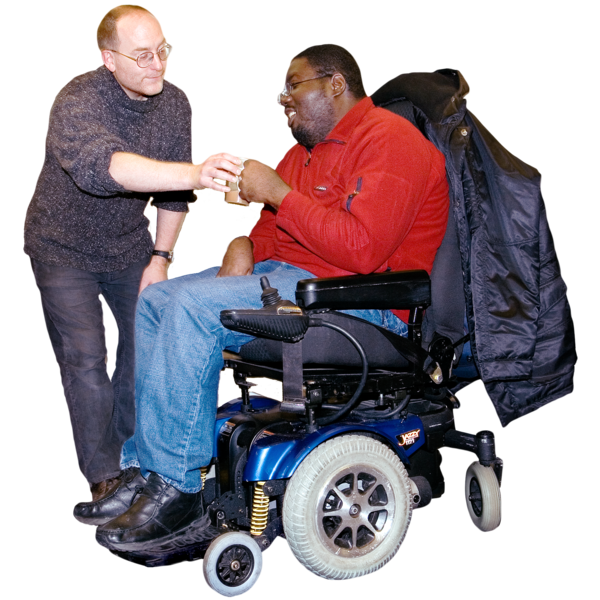 Social care means the services that give care and support to people who need it.
to adult social care.
.
Social care means the services that give care and support to people who need it.
to adult social care.
.
Adult services are different from children's services and you may have more choices.

As a child you will be treated by staff who support children and usually in only one part of the hospital.

When you are an adult, you may go to different departments for different things.
This could be the x-ray department or the ENT department – Ear, Nose and Throat department.
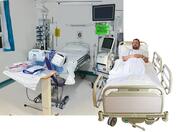
The wards may be different and may be bigger and you may be with adults of all ages.

The departments you are treated in may look different to the ones you visited as a child.

Staff may talk to you using words you may not understand.
It is important that you tell them if you don’t understand, so you can be supported in a better way.
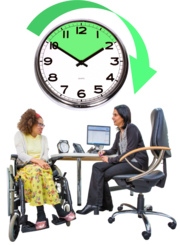
You may notice a difference in the time spent with you by hospital staff.
It may be less than when you were a child.
Remember that you can ask for a longer appointment.
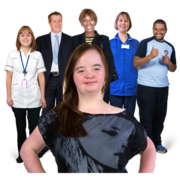
When you are moving from children's services to adult services you will be able to talk to the transitions team or a learning disability nurse at the hospital.

They can help by telling you what to expect.
They can help to make sure staff know about your health and your needs.

When you are in hospital you have the right to make your own decisions but for some decisions you still may need support.
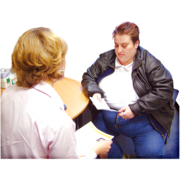
Hospital staff should talk to you in a way that you can understand so that you can make decisions about your hospital care.
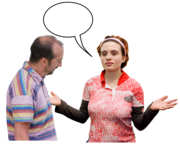
You can tell staff what needs to happen and what helped you when you were a child.

Although hospital staff should talk to you first they may also talk to your family.
This may be to make sure you feel supported, and to check they know about what needs you have.
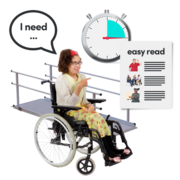
The
law
 Laws are the rules that everyone in the country has to follow. If you don't follow the rules you can get in trouble with the police.
says that if you have a disability it is your right to ask for things that will help you when in hospital.
Laws are the rules that everyone in the country has to follow. If you don't follow the rules you can get in trouble with the police.
says that if you have a disability it is your right to ask for things that will help you when in hospital.
This is called a reasonable adjustment.

An example of a reasonable adjustment would be giving you information in a way you can understand.
Each person is different and will need different reasonable adjustments.

It is important to tell the hospital what will help you.
You know yourself better than anyone else, and it is important that you or your family talk to hospital staff.

When you are an adult your parent may be asked to go home and may not be able to stay with you overnight.
You can ask for them to stay as a reasonable adjustment.
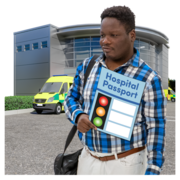
Make sure hospital staff read your hospital passport.
This should tell people what helped you when you were in children's services and what will help you now.
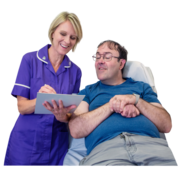
The hospital passport will help to make sure things are not missed and you receive the right care and support.

It is important that you understand what happened when you were in hospital and what you should do now.
When you leave hospital if you don’t understand anything you should to talk to the hospital staff.

